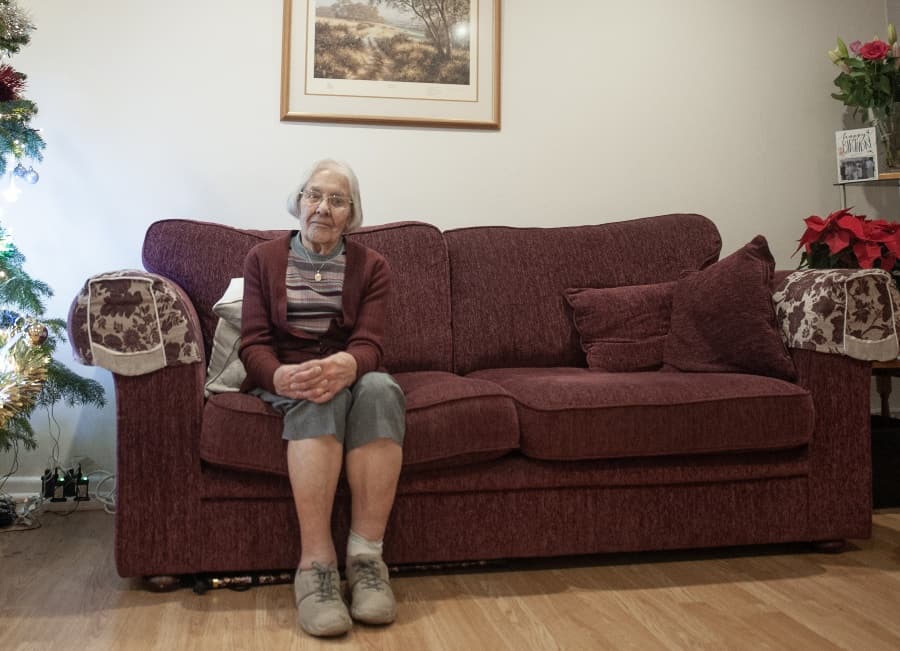Study reveals that over a quarter of over-65s that have fallen do not tell family or carers
According to a study of 2,000 people aged 65 and above, 24 percent of older people have fallen at home and 26 percent of those who had fallen did not tell friends, family or carers what had happened.
The research was commissioned by connected care platform provider Anthropos and carried out by OnePoll.
Nearly a quarter of those who have fallen said it was due to reduced mobility, which was followed by the next two top contributors to accidents: 13 percent that had fallen due to joint pain and 11 percent because of objects on the floor.
Commenting on the findings, Jim Patience, CEO of Anthropos, said: “It is extremely worrying that a quarter of people aged 65 and over are experiencing falls and over a quarter of them don’t tell a loved one or carer.
“Considering there are 11 million people aged 65 and over, the research really brings home just how widespread these issues are. If we extrapolated these numbers across the whole of the UK, it could indicate that every year around 2.6 million people fall, with 686,000 people not telling anyone about it.
“It fits into the wider pattern we’ve found that so many older people are hiding care concerns. We hope adults of all ages consider how these findings may support gentle, sensitive conversations with the older people in their lives about all care matters, from falls to forgetfulness.”
A UK Government report recently revealed the annual cost of fragility fractures, those who have lower force falls, is estimated to be £4.4 billion. Every year there are over 22,000 emergency hospital admissions resulting from falls among people over the age of 65, according to Public Health Outcomes Framework (PHOF).
The research found that almost a third of over-65s have hidden their need for any type of care support from loved ones. Concealing care concerns is not just limited to falls; the other most common issues within the findings are reduced mobility, changes in toilet habits, and forgetfulness, with others including sleeping difficulties and loss of balance.
When respondents were asked why they hid their concerns, over a quarter stated they believe they can deal with any care issue themselves, while 16 percent do not want to be labelled “vulnerable”, and 18 percent do not want to acknowledge they’re getting older. The Anthropos study also uncovered that 39 percent admitted they would keep their feelings a secret from loved ones to avoid burdening them.
Despite this, a fifth of people who have hidden their concerns admitted loved ones had realised what they were doing. Of this group, 83 percent said they felt a weight had been lifted off their shoulders after telling their close family members their secret.
A report by the Centre for Ageing Better and the University of West of England, Bristol shows that minor home aids and adaptations can greatly improve quality of life for people who are losing mobility.
Studies show that people’s difficulties with activities of daily living can be reduced by 75 percent. These include washing, bathing, going to the toilet, dressing and eating. Home aids and adaptations can also increase people’s ability to perform everyday activities by 49 percent and reduce depressive symptoms by 53 percent, the report shows.
Making these kinds of small changes to homes earlier, alongside repairs to homes, should be a greater priority for local services and could help to avoid or delay use of NHS and social care, the Centre for Ageing Better states.
Jim continued: “Connected Care Platforms can help by first building a picture of older people’s daily routines, and by spotting any meaningful changes that could point towards the need for extra support. All without being intrusive or using cameras or microphones. When that insight is shared with families and carers, it can empower both older people and their families to act fast and make better informed care decisions.”
The research supports Anthropos’ commitment to strengthening its capabilities in passive falls detection.
Earlier this year, the company partnered with Vayyar Care, a specialist in 4D imaging, to bolster its falls detection offering.
Vayyar Care’s touchless radio frequency sensing technology was added to its Connected Care Platform, enabling Anthropos users to have falls detected without the use of wearable devices. This allows the person to be cared for without having to disclose concerns and reduces the risk of injury as the sensors gather data on falls and behavioural risk factors such as decreasing mobility, enabling true fall prevention.
Recently, a new tool to help doctors accurately identify patients at high risk of serious falls based on 20 years’ worth of data was launched.


